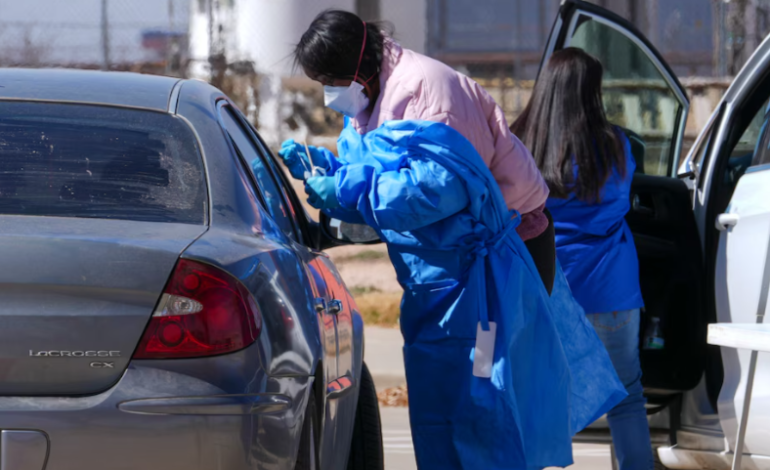Health authorities are expressing concern over a growing measles outbreak in Texas and New Mexico, with nearly 100 cases confirmed in recent weeks, the Washington Post reports.
The outbreak marks a significant reversal for a disease that was officially declared eliminated in the US in 2000. The majority of those infected are children under the age of 17, and most cases involve individuals who are either unvaccinated or whose vaccination status is unknown.
As of February 2025, the Texas Department of State Health Services (DSHS) reported 90 cases in the South Plains region, a large area in the northwest part of the state. This number represents a sharp increase from the 24 cases reported earlier in the month. Health officials expect additional cases to arise both within the outbreak area and in surrounding communities.
Nine additional cases have been reported in Lea County, New Mexico, which borders Texas’s South Plains region. Local authorities are advising residents in the affected area to monitor for symptoms and contact health services if needed.
Measles, a highly contagious viral infection, is particularly dangerous for children under the age of five. The disease presents with fever, cough, runny nose, watery eyes, and tiny white spots inside the mouth, followed by a red, blotchy rash. Complications from measles can be severe, with pneumonia being the leading cause of death in cases where it occurs. According to the Centers for Disease Control and Prevention (CDC), one or two in every 1,000 children who contract measles will die from the disease.
While the US declared measles eliminated in 2000, thanks to widespread vaccination efforts, the national vaccination rate has declined in recent years, particularly during and after the COVID-19 pandemic. A drop in vaccination rates—especially in communities where immunization levels fall below 95%—significantly raises the risk of outbreaks. This decline has been linked to growing anti-vaccine sentiment, often fueled by misinformation spread on social media and echoed by certain public figures.
The CDC has reported that most of the cases this year involve individuals who have either not received the measles vaccine or whose vaccination status remains unverified. Health experts stress the importance of maintaining high vaccination rates to prevent further outbreaks, particularly as measles is highly contagious and can quickly spread in communities with low immunization coverage.
Historically, measles caused significant illness and death in the US before the introduction of the vaccine in 1963. In the decade leading up to its availability, the disease caused an estimated 400 to 500 deaths annually and around 48,000 hospitalizations. Today, around a quarter of the cases reported this year have resulted in hospitalizations due to complications or the need to isolate infected individuals.










The latest news in your social feeds
Subscribe to our social media platforms to stay tuned